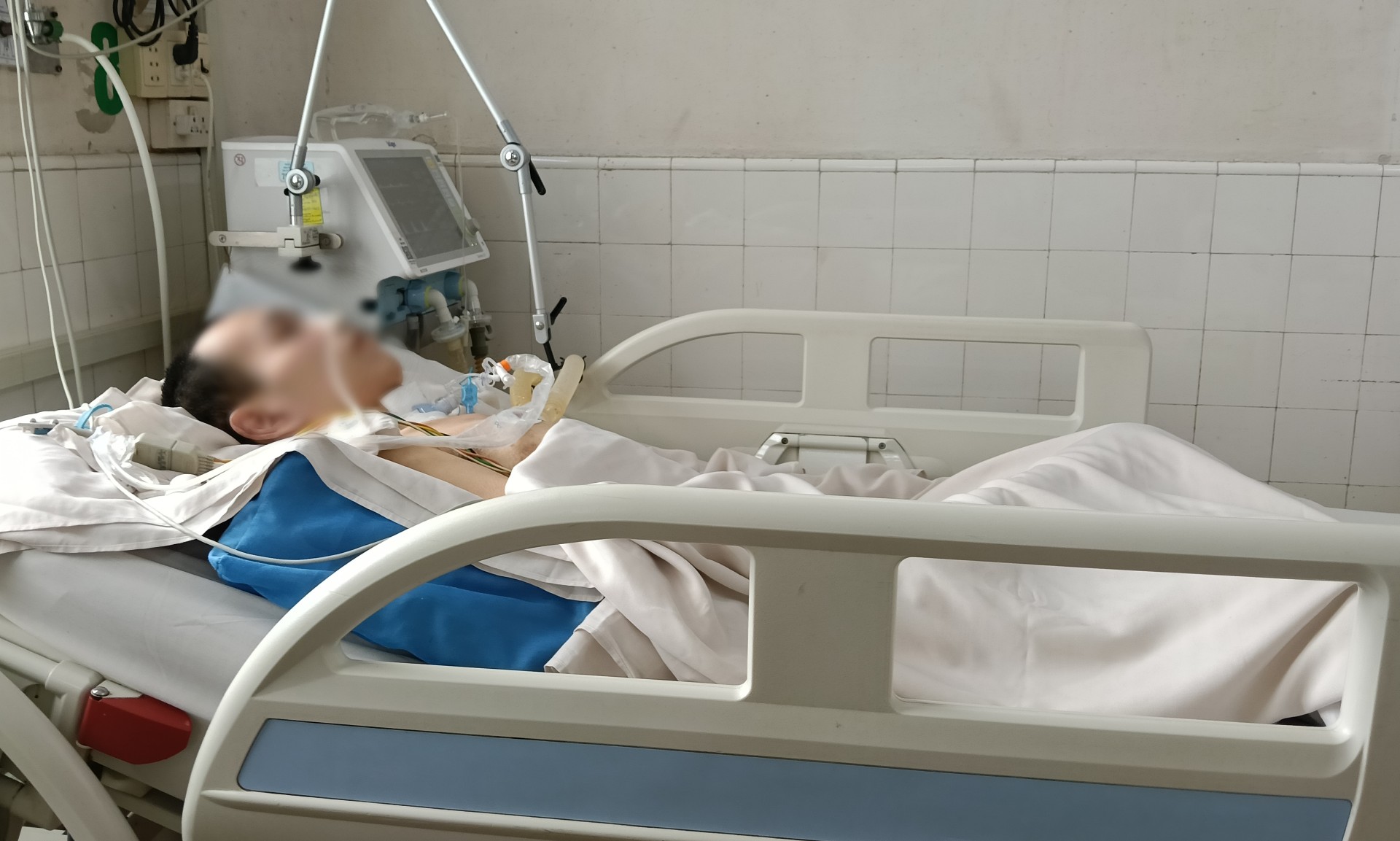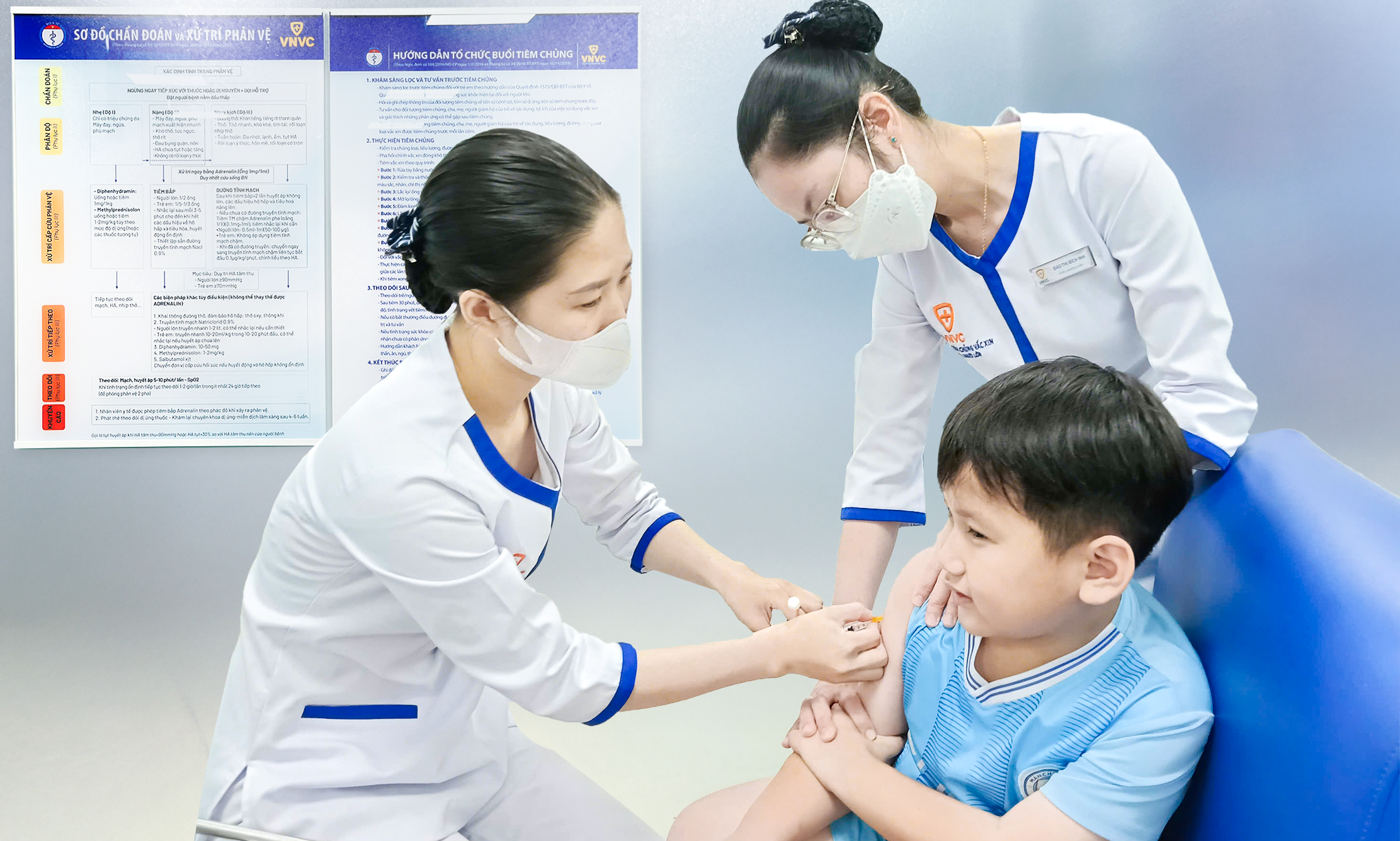Dr. Bach Thi Chinh, Medical Director of VNVC Vaccination System, made the above statement as the country has recorded more than 30 cases of Japanese encephalitis, including both children and adults, since the beginning of the year. Among these, several cases were severe, resulting in brain damage and serious complications.
According to Dr. Chinh, Japanese encephalitis is considered a dangerous disease. The virus can damage the central nervous system, directly attacking brain cells and causing inflammation in the meninges and brain tissue. Consequently, the mortality rate and the risk of permanent disability are very high. These after-effects reduce patients' ability to communicate and work, becoming a burden for families and society.
 |
A patient completely paralyzed and dependent on a ventilator due to Japanese encephalitis. Photo: Hoang Duong |
The most common after-effects are neurological and motor-related. Patients may suffer severe brain damage, leading to a persistent vegetative state, inability to eat, drink, or move independently, and complete dependence on others for care. Children affected by the disease may experience delayed intellectual, speech, and language development.
For example, a 26-year-old man from An Giang has been hospitalized at the Hospital for Tropical Diseases in TP HCM for about two years, completely paralyzed due to Japanese encephalitis and dependent on a ventilator. Doctors assess that the patient is at risk of lifelong disability with no chance of recovery. However, his family cannot afford a ventilator at home, so he has not been discharged.
Earlier, in January, an 8-year-old boy in Nghe An also suffered complete paralysis due to Japanese encephalitis, requiring ventilator support for seven months without improvement.
In addition to neurological and motor after-effects, Japanese encephalitis can also affect vision and hearing. According to the World Health Organization (WHO), the mortality rate for Japanese encephalitis can be as high as 30%. In tertiary hospitals treating severe cases, the disability rate can reach 70%.
Japanese encephalitis is an infectious disease caused by the Japanese encephalitis virus and transmitted through mosquito bites. The risk of infection is highest in rural and agricultural areas. Some cases are occasionally reported in urban areas.
In countries where Japanese encephalitis is endemic, most infections occur in children under 15. However, the risk of severe complications and after-effects is similar for children and adults. According to Dr. Chinh, the disease tends to infect older children aged 9-15 and adults who have not received booster shots or have not completed the full vaccination course.
 |
A boy is taken by his parents to receive the Japanese encephalitis vaccine at the VNVC Vaccination Center. Photo: Hoang Duong |
To prevent Japanese encephalitis, doctors recommend avoiding mosquito bites by sleeping under mosquito nets even during the day, wearing long-sleeved clothing, using mosquito repellent, clearing bushes around the house, building livestock barns away from living areas, and removing stagnant water to prevent mosquito breeding.
Vaccination is recommended, either for initial doses or booster shots for those who have not completed the full course. Vietnam currently has three types of Japanese encephalitis vaccines for children and adults: Jevax (Vietnam) available in the Expanded Program on Immunization and private vaccination services, administered from 12 months of age; Jeev (India) administered from 12 months of age; and Imojev (Thailand) administered from 9 months of age, available only through private vaccination services. Depending on an individual's vaccination history, doctors will advise on the appropriate vaccine type and schedule.
Dr. Chinh noted that the Jevax vaccine requires three basic doses, followed by a booster every three years to maintain immunity. With the Imojev vaccine, children aged 9 months to 18 years only need one basic dose and a booster one year later (a total of two doses). People 18 years and older only need one dose.
With the Jeev vaccine, children need two doses, with the first dose administered at 12 months of age and the second dose at least one month later. Booster shots are recommended during outbreaks or before traveling to areas with Japanese encephalitis. People can switch vaccines for effective prevention if the booster schedule is difficult to follow.
Hoang Duong












